NWH’s HGV driver school produces first graduates
The first five drivers to come through The NWH Driving School have hit the roads following the launch of the scheme in October.
Scottish waste and recycling firm NWH Group says it formed the school to tackle the on-going HGV driver shortage.
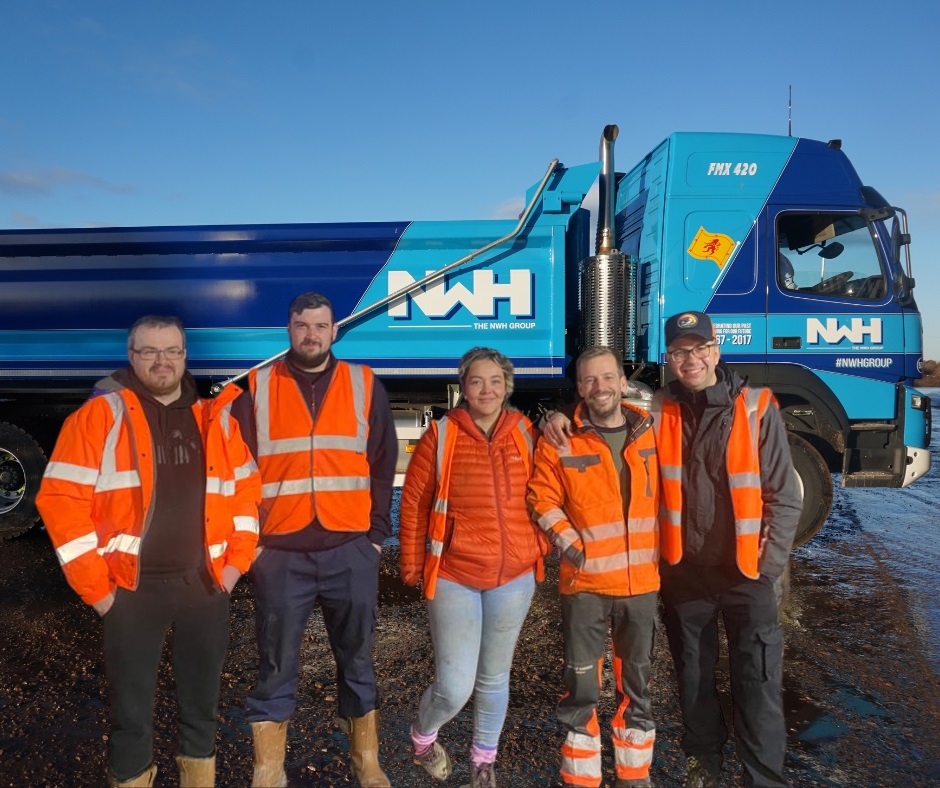
NWH is offering potential HGV drivers a fully funded route to secure their licence, a full-time salary while training and a full-time job at the end.
The business aims to secure two new HGV drivers per week through the training programme. It says a key element to the training is five weeks of mentored driving.
Ricky Ray, NWH’s group compliance director, said: “Due to the highly publicised HGV driver shortage, growing the driver pool here at NWH is a top priority for us.
“We must maintain our excellent service levels for customers and HGV drivers are essential to our business.
“It’s been really encouraging to receive many strong applications for our driving school and we’re delighted they are already successfully completing our training and hitting the roads.”
Serving the whole of Scotland and North East England from 10 sites, the business provides waste management services to the industrial, commercial and construction industries.
Recycling Lives unveils plans for ASR treatment plant
Recycling Lives has pledged to have a production model of a thermal treatment plant for automotive shredder residue (ASR) operational by the end of 2023.
The facility will sit on the metal recycling specialist’s 15-acre end-of-life vehicle (ELV) recycling park in Preston.
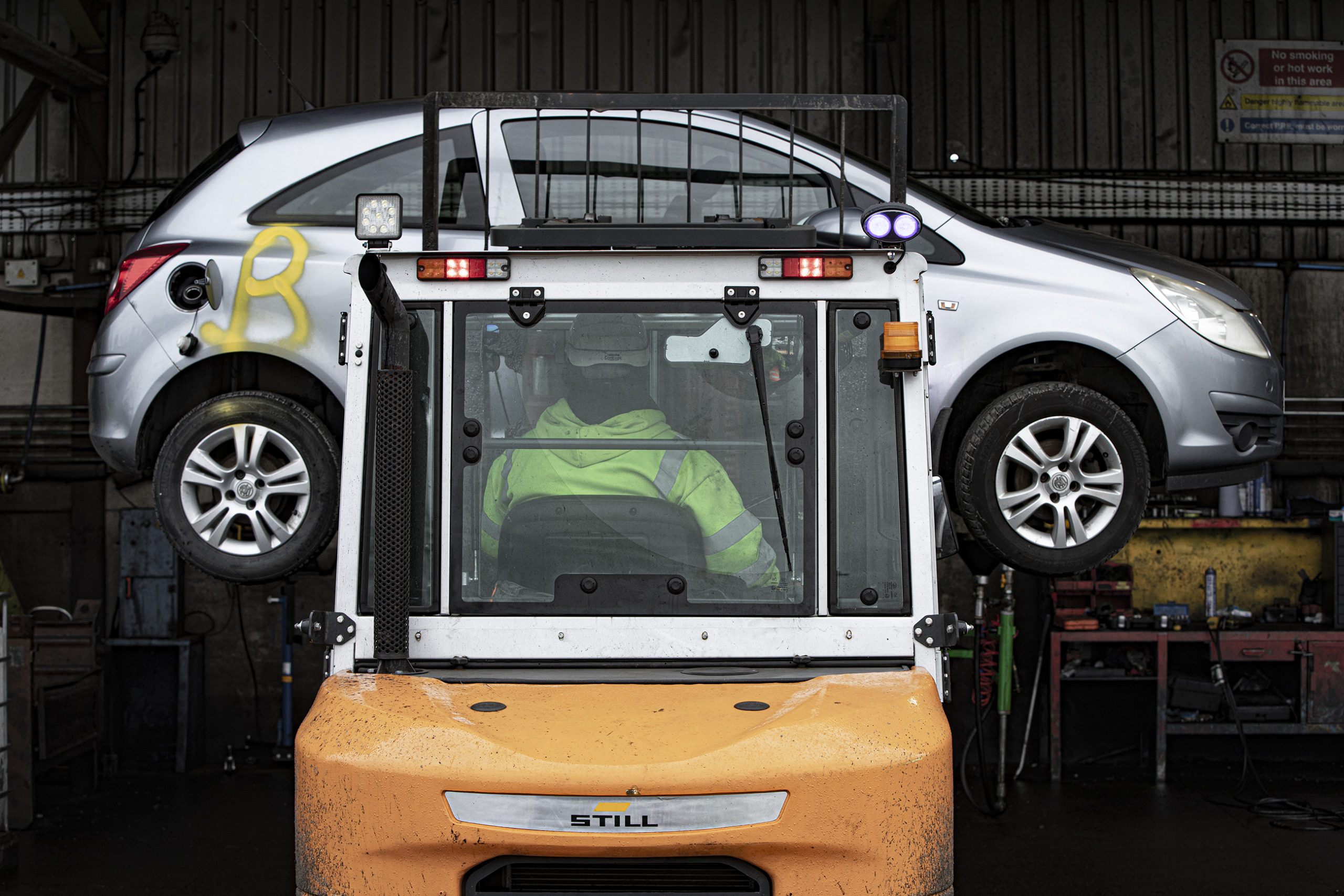
ASR amounts to about 25% of the ELV mass left over after Recycling Lives has recycled as much of a car as it can. Currently, Recycling Lives say it can recover 20%, leaving 5% which goes to landfill.
The proposed plant will use “advanced thermal decomposition” to convert ASR into energy and generate by-products such as char and combustible syngas. Char can be used to create green hydrogen, residual char as a soil modifier and ash as construction sector aggregate.
Gerry Marshall, Recycling Lives’ CEO, said: “We’re aiming to have our first operational plant up and running by the end of 2023 and we’ll be generating power across our other main plants during 2024 and 2025 and thereafter working on providing power back to the grid over the following 12-18 months.”
Recycling Lives aims to send zero ASR to landfill within four years.
O’Donovan Waste switches entire fleet to HVO biofuel
Construction and demolition waste management company O’Donovan Waste says it has switched to using solely hydrotreated vegetable oil (HVO) biofuel for its entire fleet of 100 lorries.
O’Donovan says making the switch to the alternative to petrol and diesel means it has “put the environment before profit” and it has become the first waste company to use exclusively HVO.

O’Donovan has previously announced their aspiration to be carbon neutral by 2035.
Jacqueline O’Donovan, the London-based firm’s managing director, said: “We are a month into our HVO usage and it is blatantly obvious from the catastrophes we are seeing in terms of extreme temperatures, fires and flooding worldwide, that we are not a moment too soon.
“We have to face facts and step up as business leaders – the climate change crisis needs immediate action and we all have a part to play.
“I would hope that our bold move will spur other companies to follow in a bid to minimise their environmental impact.”
Ms O’Donovan says the switch will have a “colossal effect” on clients’ scope 3 supply chain emissions and help them to reduce their carbon impact.
Westminster rolls out electric street cleaning bikes to mark World EV Day
Westminster city council and waste collection contractor Veolia rolled out 14 electric street cleansing bikes to mark World EV on 29 September.
An addition to Westminster’s fleet of more than 60 electric street cleansing and collections vehicles, the electric bikes have allowed Veolia to cut down on the number of diesel vehicles used within the borough.
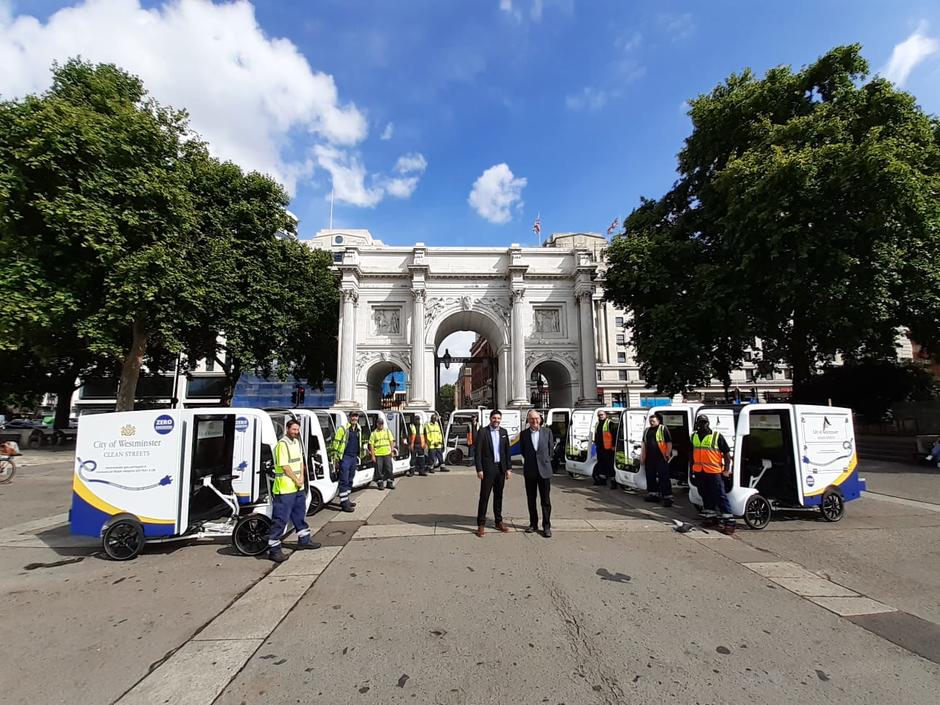
Using a bike instead of a diesel vehicle significantly reduces noise pollution and allows for a 100% reduction in nitrogen oxide emissions, Veolia says.
Veolia is using the bikes as part of its fly-tip collection process, for the delivery of commercial waste bags and for the monitoring of hot spot areas.
The bikes also ensure that waste can continue to be collected during road closures and within pedestrianised areas, Veolia says.
Cllr Paul Dimoldenberg, Westminster’s cabinet member for city management and air quality, unveiled the new fleet under Marble Arch.
Helder Branco, general manager for Veolia Westminster, said: “The new electric bikes not only lower emissions and contribute toward Westminster city council’s target of net-zero emissions by 2040, but also allow us to offer a further improved and streamlined service for Westminster residents.”





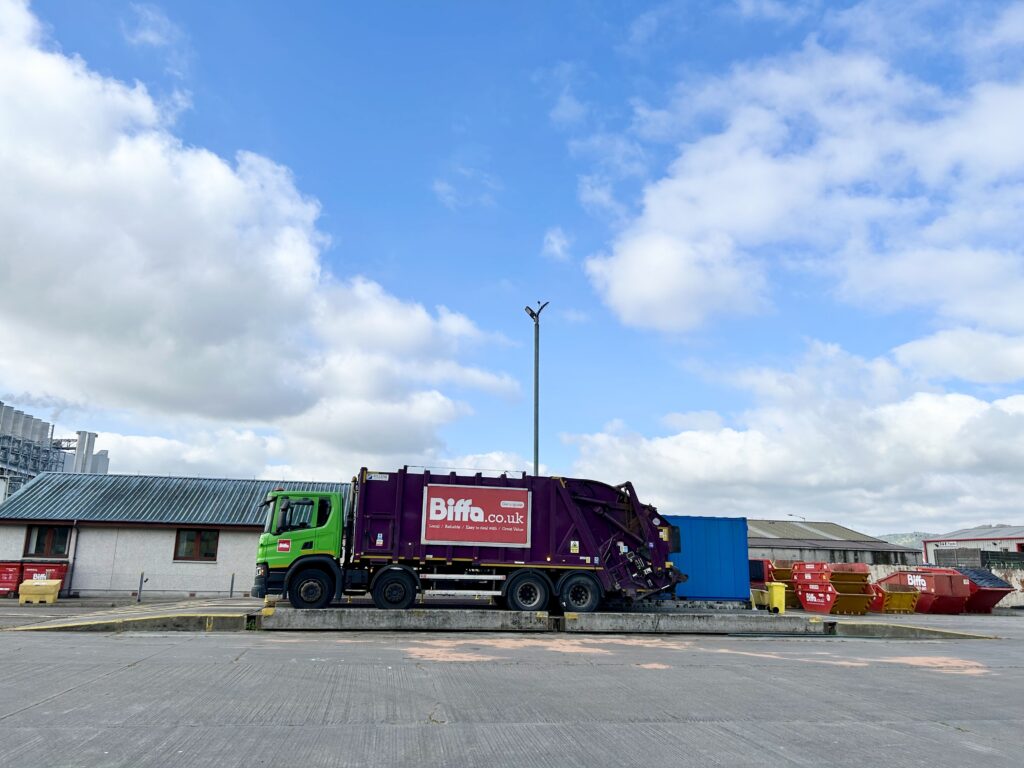
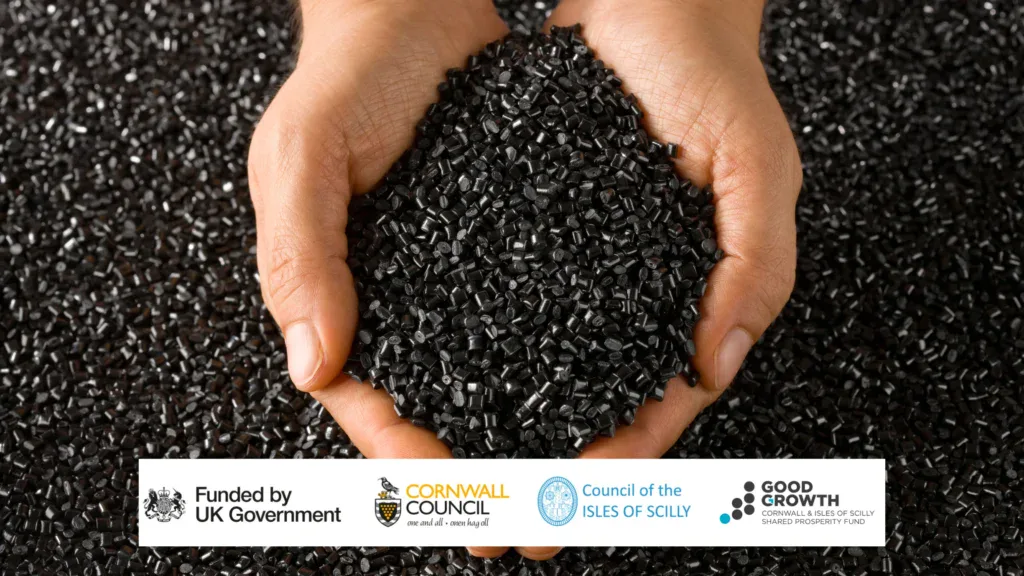


Subscribe for free